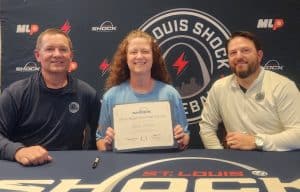Gambling in Monroe County down only slightly
While businesses across multiple industries are coping with staggering losses due to the pandemic, video gambling took only a slight dip in Monroe County in the months it has been open since COVID-19 hit Illinois.
According to data from the Illinois Gaming Board, the amount played at Monroe County video gaming terminals dropped just $166,701.20 in July-August of 2020 compared to those same months in 2019.
That is an approximately 1.4 percent decrease in the months with the most recent data.
In July and August of 2019, individuals wagered $11,949,993.39 in Monroe County. In that same time this year, they bet $11,783,292.19.
As gambling overall dipped, so did the local share of revenue.
Municipalities received $49,913.56 from those two summer months in 2019, which is $1,291.73 more than they got in this year’s months. That is about a 2.6 percent decrease.
Five percent of the net terminal income – the amount gambled minus what is paid out – goes to the local municipality.
Gambling for the entire year is down much more, however, because gaming terminals were closed in the state from March 16 to June 30.
Despite the slight drop in July and August, two municipalities saw more money gambled in those months of this year than last.
Waterloo had over $6.4 million played in those two months in 2020, while more than $5.9 million was played in 2019. Players bet $479,327.61 more this year.
That means Waterloo’s share actually rose from $25,672.91 in 2019 to $27,301.76 this year. The city uses gaming revenue for a variety of projects including facade grants, downtown beautification, the Santa Float and a planned memorial for first responders.
The other municipality where gaming numbers rose was Valmeyer, which saw $113,624.10 played. That is $29,557.52 more than July and August of 2019.
It netted $504.50 from gambling revenue in those months of 2020, up from $285.79 in 2019.
The largest drop in gaming occurred in Columbia.
That city saw its total amount wagered drop $461,885 from its 2019 total of $4,578,764.13 in July and August.
It’s municipality share likewise fell from $18,489.93 to $16,416.98. Columbia puts that money toward its parks.
Gaming terminals in unincorporated areas of the county also had less played at them in this time period.
Individuals wagered $945,047.88 at those terminals this year, which is down $144,030.10 from 2019.
The county’s share of revenue dropped from $2,263.13 to $3,577.57. That money goes into its general fund.
Finally, Hecker saw a substantial decrease in betting at its gaming terminals, as its total fell by $69,671.23 from $242,399.05 in 2019 for July and August.
That means it took in just $821.02 in those months this year compared to $1,201.90 last year.
Maeystown did not have data to compare, as it had no active video gambling terminals for July or August of 2019.






